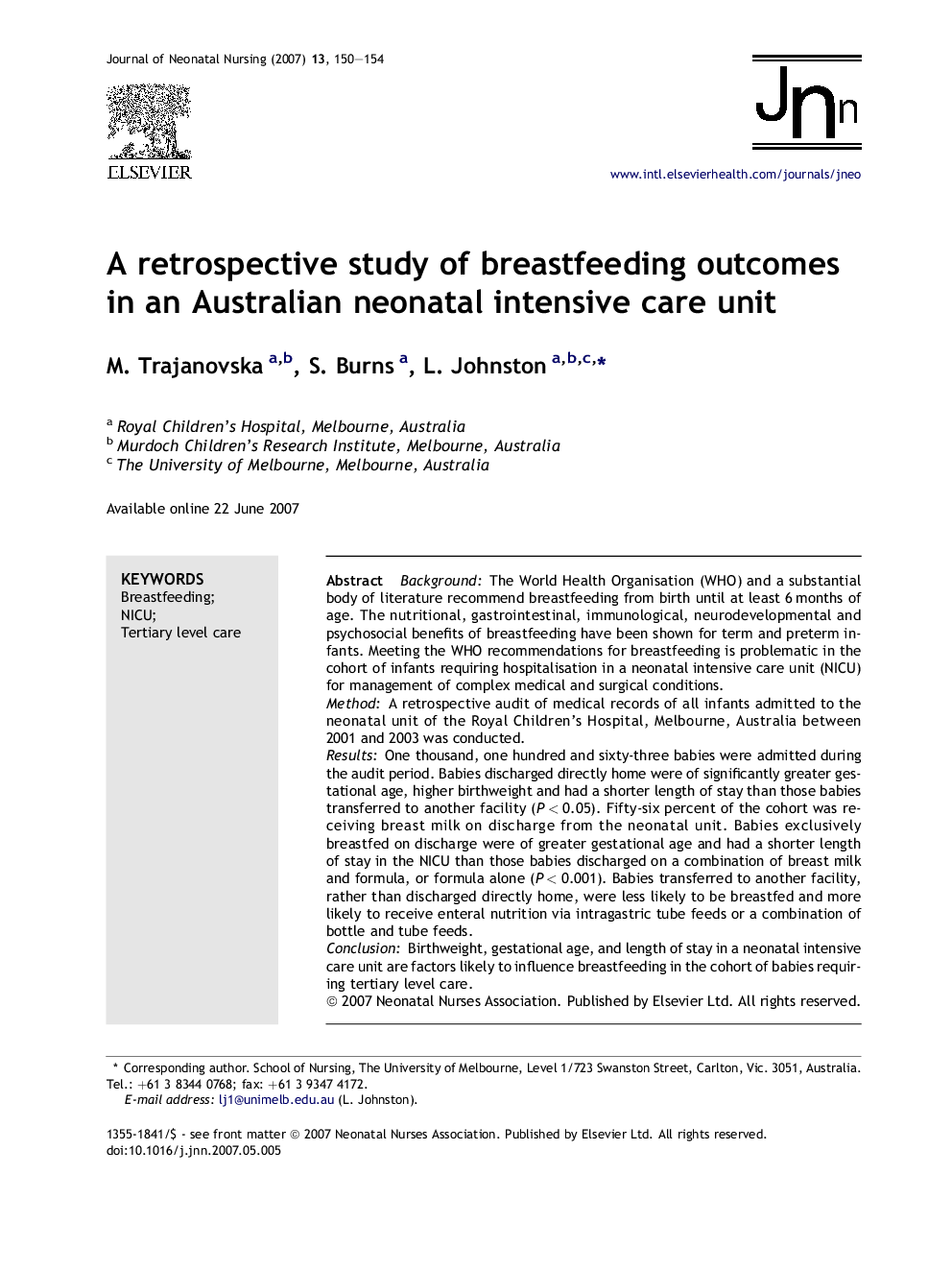| Article ID | Journal | Published Year | Pages | File Type |
|---|---|---|---|---|
| 2632001 | Journal of Neonatal Nursing | 2007 | 5 Pages |
BackgroundThe World Health Organisation (WHO) and a substantial body of literature recommend breastfeeding from birth until at least 6 months of age. The nutritional, gastrointestinal, immunological, neurodevelopmental and psychosocial benefits of breastfeeding have been shown for term and preterm infants. Meeting the WHO recommendations for breastfeeding is problematic in the cohort of infants requiring hospitalisation in a neonatal intensive care unit (NICU) for management of complex medical and surgical conditions.MethodA retrospective audit of medical records of all infants admitted to the neonatal unit of the Royal Children's Hospital, Melbourne, Australia between 2001 and 2003 was conducted.ResultsOne thousand, one hundred and sixty-three babies were admitted during the audit period. Babies discharged directly home were of significantly greater gestational age, higher birthweight and had a shorter length of stay than those babies transferred to another facility (P < 0.05). Fifty-six percent of the cohort was receiving breast milk on discharge from the neonatal unit. Babies exclusively breastfed on discharge were of greater gestational age and had a shorter length of stay in the NICU than those babies discharged on a combination of breast milk and formula, or formula alone (P < 0.001). Babies transferred to another facility, rather than discharged directly home, were less likely to be breastfed and more likely to receive enteral nutrition via intragastric tube feeds or a combination of bottle and tube feeds.ConclusionBirthweight, gestational age, and length of stay in a neonatal intensive care unit are factors likely to influence breastfeeding in the cohort of babies requiring tertiary level care.
